
Fine Classical, Instrumental, and Specialty Recordings
Label: Equilibrium Item Number: EQ154 Format: Download Year Recorded: 2017 Mass Observation University of Michigan Jerry Blackstone - Conductor Jonathan Ovalle - Percussion Ensemble Director Tarik O'Regan - Composer Scott VanOrnum - Piano Adrianna Tam, Allison Prost, Megan Smania, Maya Ballester, Lucas Alvarado - Soloists
University of Michigan 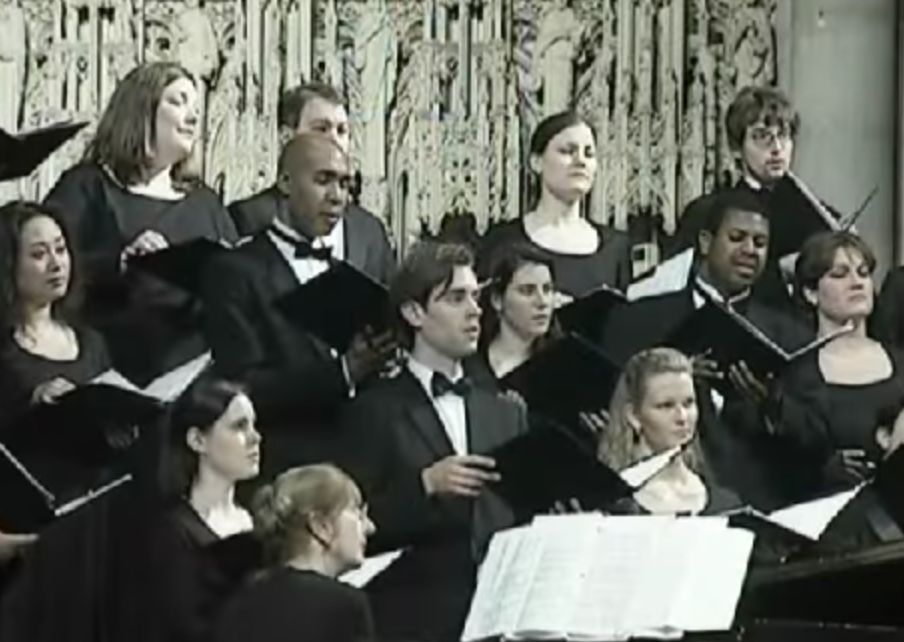 The premier choral ensemble at the University of Michigan School of Music, Theatre & Dance, the Chamber Choir performs a wide variety of the most challenging repertoire, ranging from renaissance to contemporary music. This 47-voice ensemble is comprised of graduate and upper-level voice, choral music education, and conducting majors. In addition to its performances on campus, in July of 2014, the Chamber Choir presented concerts in Brisbane, Australia and throughout New Zealand, where they were the featured choir at the National Conference of the New Zealand Choral Federation held in Hastings. In the US, the Chamber Choir has appeared with the Detroit Symphony Orchestra at Orchestra Hall under conductors Nicholas McGegan, David Lockington, and Helmuth Rilling and at National and Division conventions of the American Choral Directors Association. The Chamber Choir was honored to perform by special invitation at the 2006 inaugural conference of the National Collegiate Choral Organization, held in San Antonio, TX. Jerry Blackstone - Conductor 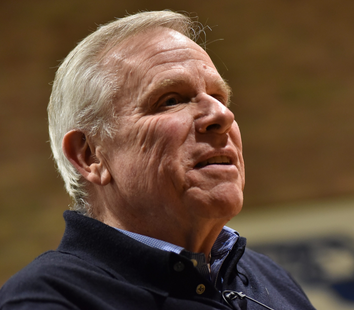 Grammy® Award winner Jerry Blackstone is a leading conductor and highly respected conducting pedagogue. Now Emeritus Professor of Conducting, he served on the faculty of the University of Michigan School of Music, Theatre & Dance for thirty years where as Director of Choirs he led the graduate program in choral conducting and oversaw the University’s eleven choirs. In February 2006, he received two Grammy® Awards ("Best Choral Performance" and "Best Classical Album") as chorusmaster for the critically acclaimed Naxos recording of William Bolcom's Songs of Innocence and of Experience. The Naxos recording of Milhaud's monumental L'Orestie d'Eschyle, on which Blackstone served as chorusmaster, was nominated for a 2015 Grammy® Award ("Best Opera Recording"). Opera Magazine reviewer Tim Ashley wrote: “The real stars, though, are the University of Michigan’s multiple Choirs, who are faced with what must be some of the most taxing choral writing in the entire operatic repertory. Their singing has tremendous authority and beauty, while the shouts and screams of Choéphores are unnerving in the extreme. Their diction is good too: the occasions when we don’t hear the words are Milhaud’s responsibility, rather than theirs. It’s an extraordinary achievement, and utterly mesmerizing.” The University of Michigan Chamber Choir, conducted by Dr. Blackstone, performed by special invitation at the inaugural conference in San Antonio of the National Collegiate Choral Organization (NCCO) and presented three enthusiastically received performances in New York City at the National Convention of the American Choral Directors Association (ACDA). As conductor of the University of Michigan Men's Glee Club from 1988-2002, Professor Blackstone led the ensemble in performances at ACDA national and division conventions and on extensive concert tours throughout Australia, Eastern and Central Europe, Asia, South America, and the United States. In 2017, NCCO presented him with its prestigious Lifetime Achievement Membership Award and, in 2006, for “significant contributions to choral music,” he received the ACDA-Michigan chapter’s Maynard Klein Lifetime Achievement Award. From 2003-2015, Dr. Blackstone served as conductor and music director of the University Musical Society (UMS) Choral Union, a large community/university chorus that frequently appears with the Detroit Symphony Orchestra (DSO) and the Ann Arbor Symphony and presents yearly performances of Handel's Messiah and other major works for chorus and orchestra. Choirs prepared by Blackstone have appeared under the batons of Valery Gergiev, Neeme Järvi, Leonard Slatkin, Hans Graf, Michael Tilson Thomas, John Adams, Helmuth Rilling, James Conlon, Nicholas McGegan, Rafael Frühbeck de Burgos, Peter Oundjian, and Yitzak Perlman. Professor Blackstone is considered one of the country's leading conducting teachers, and his students have been first place award winners and finalists in both the graduate and undergraduate divisions of ACDA's biennial National Choral Conducting competition. His 2016 rehearsal techniques DVD, Did You Hear That? (GIA Publications) deals with the conductor’s decision-making process during rehearsal. Santa Barbara Music Publishing distributes Blackstone's acclaimed educational DVD, Working with Male Voices and also publishes the Jerry Blackstone Choral Series. Blackstone is an active guest conductor and workshop presenter and has appeared in forty-two states as well as New Zealand, Australia, Hong Kong, Shanghai, and Sicily. In the summer, he leads the Adult Choir Camp and the Choral Conducting Institute at the Interlochen Center for the Arts. Prior to coming to the University of Michigan in 1988, Dr. Blackstone served on the music faculties of Phillips University in Oklahoma, Westmont College in California, and Huntington University in Indiana. He holds degrees from the University of Southern California, Indiana University, and Wheaton College. Jonathan Ovalle - Percussion Ensemble Director 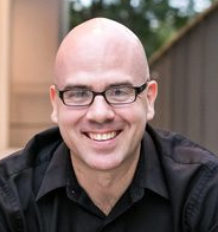 Jonathan Ovalle is a percussionist whose concerts and collaborations feature an array of musical aesthetics. As a performer, he is both a committed interpreter of contemporary art music as well as an inspired jazz/world percussionist and drummer. Ovalle has performed and presented masterclasses in North America, Europe, and Asia, and most recently served on the faculty of the International Percussion Institute in Aberdeen, Scotland in August 2017. He has been a featured artist at the Percussive Arts Society International Convention, has served as a judge for the Thailand Drumline Competition and has also been a featured clinician at the Ohio, Tennessee, Quebec, and Emory University Days of Percussion. Ovalle is currently an assistant professor at the University of Michigan School of Music, Theater & Dance where he serves as a director of the University's famed percussion ensemble and is a faculty associate in the department of Latina/o studies. His research interests include: kinesiology/motor coordination; utilizing the body's natural physics to create greater efficiency and more depth of tone; snare drum performance; and pedagogy as a vehicle to developing universal technique on all percussion instruments, as well as memory organization and learning processes and their role in effective practicing. A sought-after educator, he is inspired by the unique puzzle each student presents and finds motivation in helping them overcome both technical and mental roadblocks-unlocking each students' full potential. Tarik O'Regan - Composer 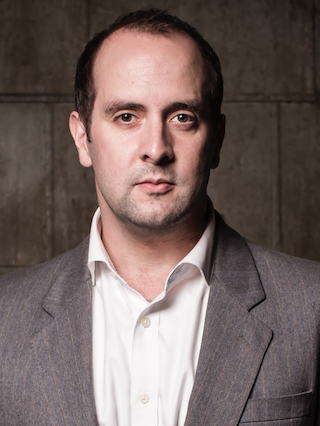 Tarik O’Regan (born: London, 1978) has written music for a wide variety of ensembles and organizations; these include the BBC Symphony Orchestra, Royal Philharmonic Orchestra, Australian Chamber Orchestra, BBC National Orchestra of Wales, Estonian Philharmonic Chamber Choir, Sydney Dance Company, Chamber Choir Ireland, BBC Proms at the Royal Albert Hall, and the Royal Opera House, London. The Phoenix, his opera about the life of Lorenzo Da Ponte, commissioned by Houston Grand Opera with a libretto by John Caird, will receive its premiere in April 2019, starring Thomas Hampson and Luca Pisaroni. Other highlights of the 2018/19 season include revival performances of two large-scale concert works, Solitude Trilogy and Mass Observation, by the Vancouver Chamber Choir and Houston Chamber Choir respectively. O’Regan’s work, recognized with two GRAMMY® nominations and two British Composer Awards, has been recorded on 36 albums and is published exclusively by Novello & Co. Ltd, part of the Music Sales Group. Scott VanOrnum - Piano Adrianna Tam, Allison Prost, Megan Smania, Maya Ballester, Lucas Alvarado - Soloists Mass Observation is a meditation on the histories of our varied ambivalent relationships with surveillance in its myriad guises. The use of technologies that sate our desires to be watched and heard (safety, tracking, empowerment, and pride) has, in some sense, always been able to be weighed against our anxieties around invasions of privacy (physical and psychological harm, hacking, subjugation, and embarrassment). The work takes its title from the British social research organization, Mass-Observation, which aimed to record everyday life in the United Kingdom. Founded in 1937, Mass-Observation controversially paid investigators to anonymously record people's conversation and behavior at work, on the street and at various public occasions including public meetings, sporting, and religious events. Scored for chorus and percussion sextet, Mass Observation ebbs and flows between various polarities (human voices and percussion instruments, pitched and unpitched sounds, clear and opaque tonalities) over the course of its thirteen movements. There is a ritualistic nature to the overall pacing of the work, reminiscent of a liturgical mass setting. The two groups of musicians are rarely aligned: for much of the piece they watch and listen to one another in silence. Tarik O’Regan MASS OBSERVATION text compiled by Tarik O’Regan 1 | PRELUDE 2 | WATCHING: ARGUS PANOPTES The mountain sat upon the plain In his eternal chair, His observation omnifold, His inquest everywhere. from Poem LXXII, published in Poems, edited by Mabel Loomis Todd and T. W. Higginson (1890), by Emily Dickinson (1830-1886) Sleep never fell upon his eyes; but he kept sure watch always. from Hesiod, Homeric Hymns, and Homerica (1914), by H. G. Evelyn-White (1884 - 1924) 3 | INTERLUDE I 4 | BOUNDLESS INFORMANT: THE INSPECTION PRINCIPLE To say all in one word, it will be found applicable, I think, without exception, to all establishments whatsoever, in which […] a number of persons are meant to be kept under inspection. from Panopticon (1791), by Jeremy Bentham (1748-1832) Dust that wanders, eyeing (With eyes that hardly glow) New faces, dimly spying For friends that come and go. from Ballade of Dead Friends, published in Children of the night: a book of poems (1910), by Edwin Arlington Robinson (1869-1935) It is the most important point, that the persons to be inspected should always feel themselves as if under inspection. from Panopticon, Jeremy Bentham 5 | INTERLUDE II 6 | PRISM I: WE LOOK THROUGH THEM AT THE WORLD, AND ULTIMATELY STARE BACK AT OURSELVES* Without lyre, without lute or chorus, Death a silent pilot comes at last. From Glukupikros Eros (1881) by Oscar Wilde (1854-1900) And in the drone of the aeroplane the voice of the summer sky murmured its fierce soul. […] Men, women, and children were spotted for a second upon the horizon, and then […] they wavered and sought shade beneath the trees. It seemed as if all […] had sunk down in the heat motionless and lay huddled upon the ground, but their voices went wavering from them as if they were flames lolling from the thick waxen bodies of candles. From Kew Gardens, published in the collection Monday or Tuesday (1921), by Virginia Woolf (1882-1941) 7 | INTERLUDE III: NUMBERS STATION** Six. Niner. Zero. Oblique. Fiver. Two. Attention. Six. Fiver. Four. Eight. Seven. Six. Fiver. Four. Eight. Seven. Niner. Three. Zero. Four. Fiver. Three. Six. Eight. Three. Niner. Zero. One. Zero. Sixer. Four. Zero. One. Zero. Sixer. Four Attention. Six. Fiver. Four. Eight. Seven. Zero. One. Zero. Sixer. Four. Out. 8 | PRISM II: THEY WITNESS THE CARNAGE*** Voices. Yes, voices. Wordless voices, breaking the silence suddenly with such depth of contentment, such passion of desire, or, in the voices of children, such freshness of surprise; breaking the silence? But there was no silence. […] The voices cried aloud and the petals of myriads of flowers flashed their colours into the air. from Kew Gardens, Virginia Woolf 9 | INTERLUDE IV 10 | LISTENING I: STILLNESS I listen to the stillness of you, My dear, among it all; I feel your silence touch my words as I talk, And take them in thrall. My words fly off a forge The length of a spark; I see the night-sky easily sip them Up in the dark. from Listening, published in Amores (1916), by D. H. Lawrence (1885-1930) 11 | INTERLUDE V 12 | LISTENING II: OBSERVATION OMNIFOLD The mountain sat upon the plain In his eternal chair, His observation omnifold, His inquest everywhere. from Poem LXXII, Emily Dickinson 13 | POSTLUDE _________________________ NOTES *The title of this movement is taken from Confessions of a Drone Warrior, published in GQ (October 23, 2013), by Matthew Power. ** The text of this movement is a transcription of an active numbers station, known informally as E11 or Oblique, which has broadcast continuously for over thirty years a female voice reading groups of numbers; this numbers station is purportedly operated now by Agencja Wywiadu (or AW), a Polish intelligence agency. This transcription was distributed by the The Conet Project: Recordings of Shortwave Numbers Stations in 1997. ***The title of this movement is taken from Drone Pilots Are Found to Get Stress Disorders Much as Those in Combat Do, published in the New York Times (February 23, 2013), by James Dao.
Label: Equilibrium Item Number: EQ154 Format: Download Year Recorded: 2017 Recorded, edited, mixed, and mastered by Dave Schall Mass Observation takes its title from the British social research organization, founded in 1937 to record everyday life in the United Kingdom. In the era before cellular phones made it possible to record and document every moment of life, Mass-Observation controversially paid investigators to anonymously record people’s conversation and behavior at work, on the street and at various public occasions. Not Available | |||||||||||||||||||||||||||||||||
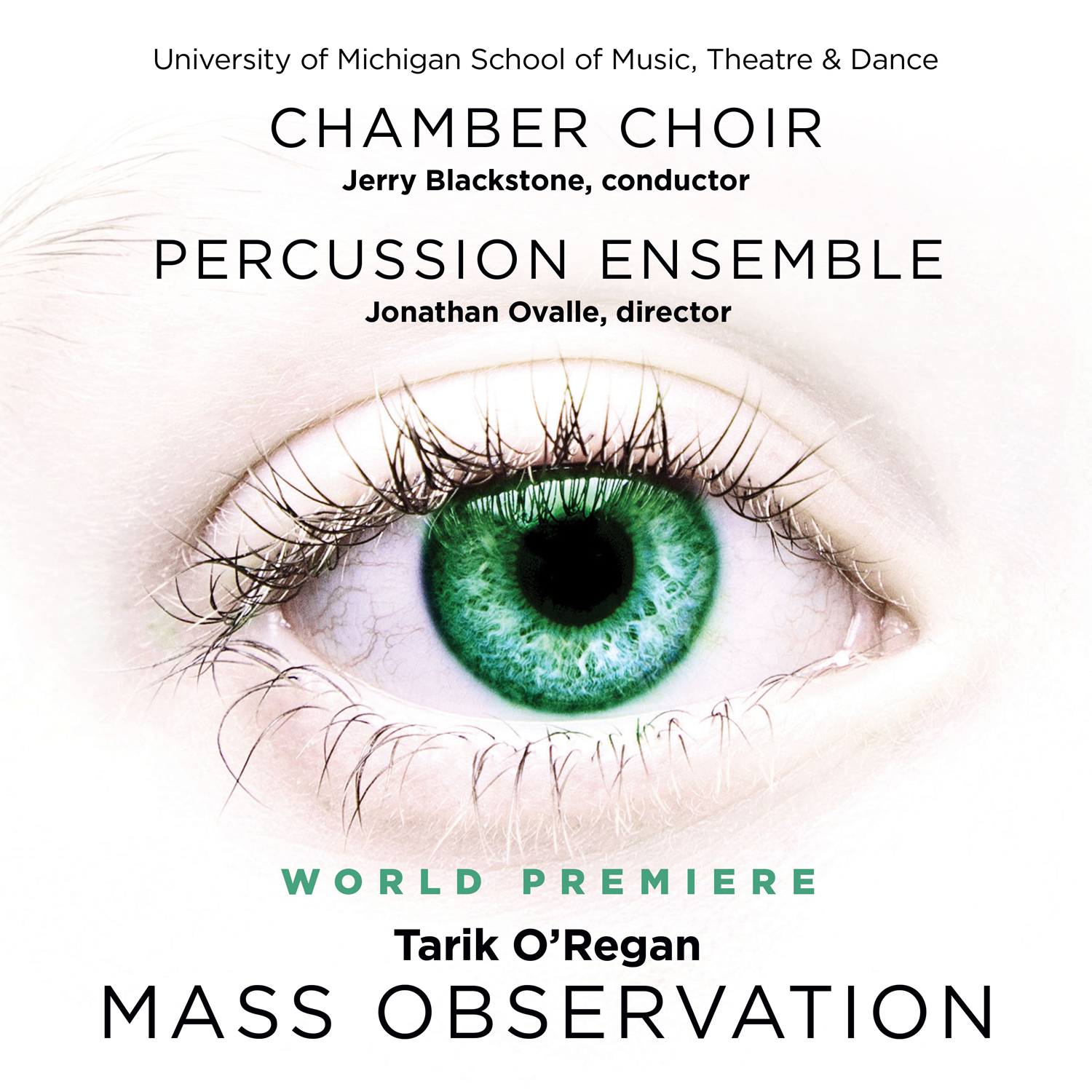
 Amazon
Amazon
 Follow Us on Twitter
Follow Us on Twitter Follow Us on Instagram
Follow Us on Instagram Visit Our Partner Soundset Recordings
Visit Our Partner Soundset Recordings